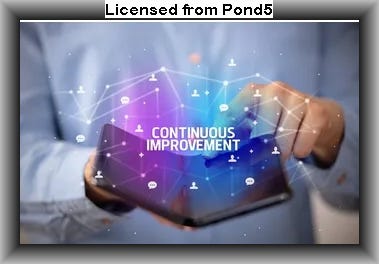I have worked with many private entities and government agencies over the years. Most of my engagements have been with business process improvement projects.
One agency I worked with created a new position - a liaison between the IT department and other departments, while another agency has an applications group with a dedicated support person. It's a similar setup but different results.
.jpg)
Agency #1: After some turnover and project managers stretched across multiple projects, IT management determined they needed a dedicated person to get the project on track. They created a position, a liaison between the IT department and all other departments. This position was also responsible for supporting the solution, so this person worked with the vendor and the internal staff.
This person and I worked as a team so she could get caught up on where things stood and understand the big picture. She then took the initiative to begin working with internal departments and staff, acting as an internal consultant to understand their needs and bottlenecks.
This person built relationships with the end users. She demonstrated the solution's value, which excited and empowered them to begin looking at internal processes and what could be changed and improved. The willingness and openness for change from department leadership and staff was also a great enabler.
This agency has had the solution for eight years. The momentum has grown tremendously since the addition of a dedicated person. They continue to add departments and processes regularly. Their new workflows and automated processes have saved them substantial time and money.
Does AI fit in this scenario?
I don’t think so. The success of this project was having this dedicated person (human) visiting departments and meeting with management and staff to document and learn their processes.
She had the right skills to ensure success: Good people skills, good technical skills, political savvy, and good attention to detail.
The role of an internal IT consultant, as well as the end users who perform the work, cannot be replaced by a robot or AI application. It takes many meetings and Q & A to document processes and get to the bottom of what is really happening. I don’t foresee some prompt that management can send out and get everything back to move forward with automation improvements. Real life doesn’t work that way.
Agency #2: This agency deployed an enterprise solution and set up many good processes early on. Similar to the above agency, they have dedicated staff to support the application. However, the application has been in a support and maintenance stage over the last few years, with little emphasis on evaluating its usage and value.
Maybe IT is not set up to be the ones to evaluate the day-to-day processes of each department. And maybe some of the departments don't take the time or have the time to evaluate their processes and ask IT for help and guidance.
Some staff did understand the system's value and continued to ask for improvements. And there were a handful of staff that trained themselves and created processes on their own. But, overall, there seems to be a disconnect in whose role it is to ensure value from the initial cost and annual costs.
This agency has had the solution for 11 years. I am certain they could be doing much more with it if there was a joint initiative.
One person I talked with on this said it was a cultural thing.
Here are my thoughts:
IT - Departments may not have the bandwidth to provide end-user process analysis and support. So whose responsibility is it?
IT - Management has strict guidelines of what they do and don't do. Although they may have an application group, they don't have in the job description the level of interaction and consulting that the first agency did.
Employees/Staffing - You will always have someone who complains, but when asked for ideas to help them, they say they are too busy or don't respond. It is hard to make headway in this scenario. You really need to empower your power users and those who care about their work and productivity. And be leery of those who always say they are too busy to entertain ideas.
Leadership and Culture - If management doesn't instill a level of empowerment and speaking out, people will do what they are told, even though they think it is slow and tedious and could be done differently.
Does AI fit in this scenario?
I think AI could help in an environment like this. For example, monthly reminders could be sent out to departments that requests information about their use of applications. It could be a fillable form where the data is extracted and reports generated.
This would need to be mandatory and part of job descriptions, so you don’t have staff who ignore it.
IT and department heads would now have something that they can start a dialog with and work on process improvements. And if they want to pass through the data to an AI for assistance, that could be another use case.
But, for all this to work there has to be people who are responsible for taking the data and reports and doing something with it.
No matter if AI is involved or not, you are either constantly evaluating and improving, or you are stuck in maintenance mode, waiting for something that needs to be fixed. Try not to be the latter.
Written by Debby Kruzic - President of Records and Data Management, Creator of Teckedin.com knowledge base
